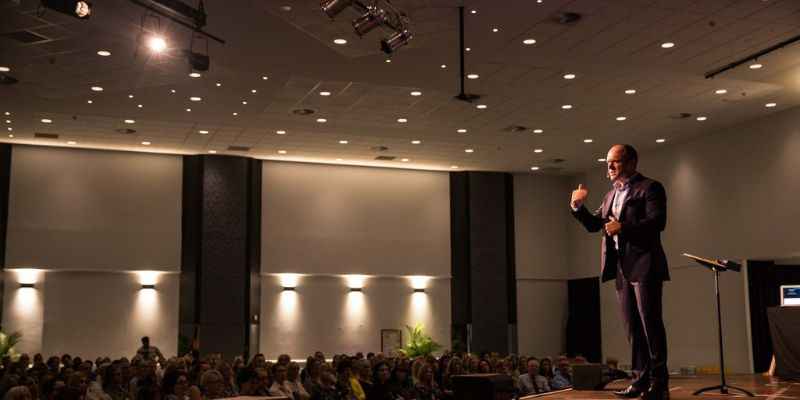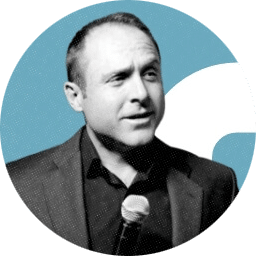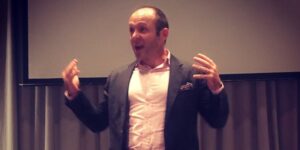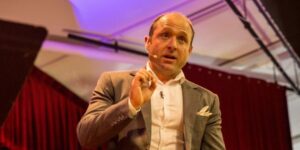Welcome to the Catholic Teacher Daily Podcast with Jonathan Doyle. In this episode, Jonathan explores the significance of prayer in the life of a Catholic educator. Through insights drawn from scripture, personal anecdotes, and reflections on the teachings of Joseph Campbell, Jonathan emphasizes the transformative power of prayer, even in the smallest acts. Join us as we delve into the sacred place of daily prayer and its profound impact on our spiritual journey as Catholic educators.
Insights for Catholic Educators on God's Economy
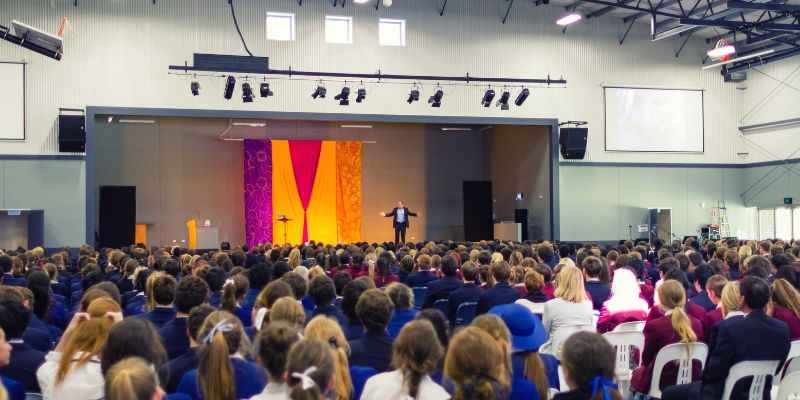
Well, hey there, my friend, Jonathan Doyle, with you here. Welcome aboard to the Catholic Teacher daily podcast. We are back on the horse and have a great week of content coming up. It is just a real privilege to record this, and I hope that does something that I say can be used by the Holy Spirit to confirm you in this incredible vocational work that you do every single day as a Catholic educator.
Do you know that God sees you? Do you know that he is aware of the efforts that you make, especially those little ones? Often on stage, when I’m speaking to teachers, I’m always talking about what I call God’s economy. In a human economy, bigger is better than smaller, more is better than less, and faster is better than slower. But in the economy of the kingdom of God, the scripture really clearly tells us that his ways are as high above our ways and his thoughts are as high above our thoughts, as the heavens are above the earth.
So what he values, the scripture again tells us that if you look back to the book of Samuel, when the sons of Jesse are being brought before the prophet and they’re looking at the appearance, then of course there’s that famous line: Man looks at appearance, but God looks at the heart.
The Profound Influence of Small Acts and Kindness in the Life of a Catholic Educator
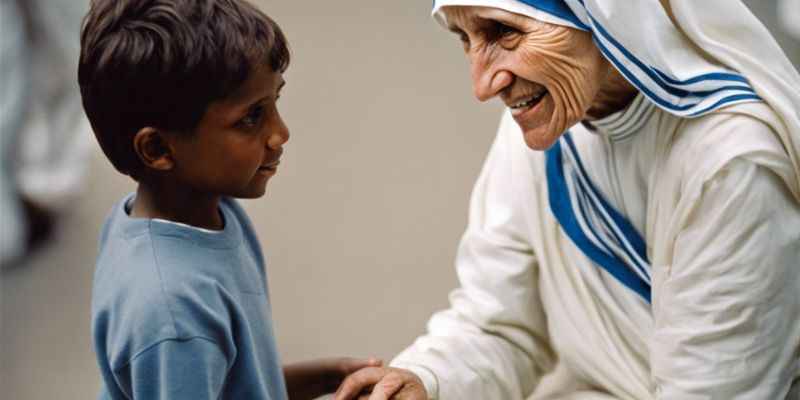
God sees these tiny little things. Mother Teresa used to talk about that; she was always big on the idea that it isn’t the act. It isn’t the size of the act. It’s the motivation of the heart, the small things done with great love, and I just want to remind you as you go through your day as a Catholic teacher that those little things, and these little things that you do, no one’s ever going to see them. But just the smallest things—literally something as small as a smile or wave.
I often say that you could have a student in your school. Who’s dealing with anything, right? You could just pick anything—loss of a grandparent, stress in the home, family breakdown, some form of trauma—who knows? And they’re carrying that, and no one knows about that, but just walking down a corridor in your school and smiling and saying, Hey, good morning. And just recognizing them, just being the awareness of Christ in some young person’s life, is such a powerful thing that you’re bringing the awareness that Christ sees them, and you are embodying that into the world.
So please, my friend, do not underestimate the smallest things that you do. The smallest word of encouragement or the smallest word of affirmation can make such a big difference. That is a long introduction. I didn’t plan to say much to that, but. Let’s pray that the good Lord will use it.
Friends, housekeeping, please make sure you subscribe to the podcast. If you like what you hear, if you find it encouraging in any sense, I’d love you to share it. Subscribe to it, but share it; just pop it on your social feed and send it to some other teachers. It’s a great privilege to see it growing over time and reaching more people, so do that. You can find everything you need to know about me on my website, jonathandoyle.co. I speak to Catholic teachers all over the world at live events, so if you’d like me to come and speak to your staff in your diocese, please go check out the website. And if you’re on Instagram, I am @jdoylespeaks, and there’s a load of videos on YouTube at @onecatholicteacher.
Hero's Journey: A Metaphor for Catholic Educators

All right. Friends, let’s do it. On my other podcast, believe it or not, I actually record two podcasts a day. And I do another one for a kind of broad motivation business. personal development stuff that I’ve been doing for years. And I’ve been sharing some insights on that other channel from the mythologist, Joseph Campbell. If you’re not familiar with Joseph Campbell, he’s quite famous as a thinker, philosopher, and mythologist, and he was the one who kind of articulated this idea of the hero’s journey.
You may have heard of that; if you’ve ever taught English literature, you’ve probably come across it. It’s this archetype, right? It’s this sort of archetype, this narrative archetype of the hero’s journey, which is that the hero is languishing somewhere; they’re stuck in some backwater.
And the way to think about it is the first ever Star Wars movie, the original Star Wars. Because that movie was so successful, there were a few, but one of them was that it absolutely nailed this hero’s journey. And you’ve got Luke Skywalker languishing in this backwater, nowhere, going nowhere, and the movie starts with his frustration, and then a stranger appears, Obi-Wan. And then he sort of reveals a new identity and a new possibility to the hero. But the only way that they can get into that is to go on the hero’s journey, to face incredible risks, say goodbye to everything they’ve known, face obstacles and hardships, find inner strength, and come back changed. They return to their community changed.
As I said on my other show, the roots of that are very deep. If you look at when Homer was writing the Iliad—that’s around 3000 BC—you are seeing the hero’s journey in Odysseus. Odysseus traveled, leaving Ithaca, traveling to the Trojan War, and then returning through all these trials back to Ithaca.
The Sacred Place: Daily Prayer for Catholic Educators
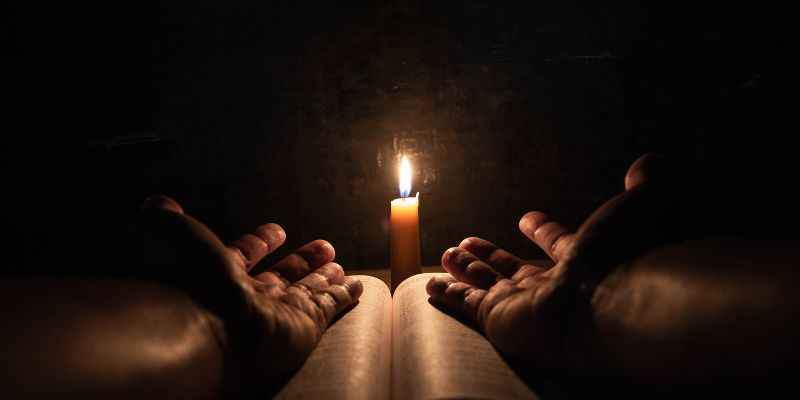
So there’s an introduction to Joseph Campbell. You’re going okay; you’ve covered a bit of ground. We’ve only just started. But I wanted to share a quote. I just been working through some of his quotes and really powerful stuff. Gosh, we have such great riches. Campbell obviously is not part of the ordinary magisterium of the Catholic Church, but there is such great wisdom, and I think all wisdom, all true wisdom, whatever is true, whatever is good, whatever is beautiful. It comes to us from the Holy Spirit, permeating through culture. And scripture is full of men and women who weren’t necessarily under the authority of God but were still being used by God to accomplish his ends and purposes.
So let me share this with you today because this quote ties into something that I think is absolutely indispensable for every single Catholic teacher, principal, bishop, or anybody in Catholic leadership or ministry anywhere at all times. So let me share this with you. He says,
“You must have a room or a certain hour or so a day. You don't know what was in the papers that morning. You don't know who your friends are. You don't know what you owe anybody. You don't know what anybody owes you. This is a place where you can simply experience and bring forth what you are and what you might be. This is the place of creative incubation. At first, you may find that nothing happens there. But if you have a sacred place and use it, something eventually will happen.”
Joseph Campbell Tweet
Okay, for me, this is pointing to the absolute primacy of our life of prayer. So I will never back off on this one. I speak about it a lot when I’m doing staff professional development, when I’m giving big keynotes, or when I’m doing anything involving Catholic educators. I see this as one of the pillars of how we navigate and grow through the challenges we face. So for many of us, what happens, of course, is that we may not have developed a life of prayer.
We may not have particularly developed that discipline over the years. No one taught us really how to have one. We may not have seen it modeled, and we just kind of get up every day and we’re like, Oh Lord, good morning, and hello Jesus. And you might say a two-second prayer, and off we go, but I’m really pointing us to something different. I’m talking as if I’m pointing us towards what I often refer to as a fundamental disposition, a modality of being, or a modality of life itself.
So for close to 30 years, I have had a pretty strong, really almost relentless daily ritual of a life of prayer. Wherever I am in the world, I’ve got a young family; we’ve got three teenagers. So for me, it’s 4:00 AM. It’s pretty much 4:00 a.m. most days. And it is an extraordinary time because it’s so quiet, and I’m a morning person, and it’s so peaceful. So I’m not telling anybody listening to start at 4:00 AM because, I mean, you had a guy named Jonathan; good luck with that. But it’s just the thing that’s been on my heart for all these years. I just want to encourage you to begin to consider building this life of prayer.
So what Campbell says in this quote is that you bring forth what you are. What happens in that silence is something that happens over time. So it’s not like a ticker-box exercise where we’re instantly transported into vast spiritual realms that could happen. We can’t limit God, but for most of us, it’s this gradual disposition or heart.
Embracing a Catholic Connection through Reflections, Sacred Spaces, and Scriptural Engagement
So my perspective at the moment has changed a little bit recently. Where I sit in silence. I have a coffee. I’ve got this beautiful sort of sacred space that I have, and then I’m just going through the readings of the day. So I’ve got the ordo, the church’s order of mass for the day, and then I’m really going back to scripture. I’m really spending every day just allowing Christ to speak to me through his word because, of course, He is the word. An encounter with Him through the scriptures is a very genuine encounter.
Look at the second Vatican Council, Dei Verbum. There’s a beautiful line there that I often share at live events. I think it says, I can’t quite exactly, but basically, it says it is in the sacred texts that the father comes to speak lovingly with his children, that God himself actually comes to speak to us as children through that text.
So I’ve been very challenged recently to realize that even if I was at daily mass, I probably wasn’t engaging enough with the scriptures. So that’s just what I’m doing at the moment. I’m not saying that’s exactly what you have to do, of course. But there’s just this, and then I do a lot of journaling. Sometimes I read the office of readings from the divine office, some getting some exposure to the doctors of the church. I’m getting some exposure to patristic fathers. I’m getting some exposure to the great men and women saints throughout the centuries. Which has been really beautiful too, and that’s just what I’m doing. Again, I only want to clarify that God moves us all in different forms of prayer.
Nurturing Intimacy: Discovering the True Purpose of Prayer

For years, I used to have my guitar out and I’d be doing worship and worship music, and so in the different seasons of life, we might pray in different ways. But I want to give you another thought on this. I caught up with my own friend, a great priest friend of mine, recently, who’s just been a great blessing to us and who was the priest who witnessed our marriage.
We had confession the other day, and I was talking about my daily prayer and life of prayer, and he was like, ‘Cause I was looking at making some changes, and he just reminded me of this great truth. Do you know what the purpose of prayer is? It’s not about a formula, it’s not a must “to do” this. It’s not about whether I’m going to be a serious Catholic educator or a principal; I should. He reminded me of this great, important truth about relationships. Whatever our prayer is, it’s about growing in intimacy with our Lord and Savior, Jesus Christ. And growing in greater love for his mother and growing in greater love for the church triumphant and holy mother church here on earth.
It’s about learning to love those around us more. It’s learning to become saints, but the fundamental victor of aspiration, as John Paul II used to say. I always loved that phrase, victor of aspiration. Is it that we grow in relationships, so my friend, listen again to Joseph Campbell. Here he says, At first, you may find nothing happens there, but if you have a sacred place, use it. Something will eventually happen. So what’s that something? I would suggest to you that what will happen is that you begin to intensify and deepen this life of prayer. You will become, over time, such a blessing to your educational Catholic faith community. In little ways, you will just develop and adjust. He takes nothing. God takes nothing. He simply, what’s the word I’m looking for? Elevates. Christ’s defies—that’s a new one. Your natural abilities strengthen you.
The Future Saints of Our Time and the Transformative Power of Prayer
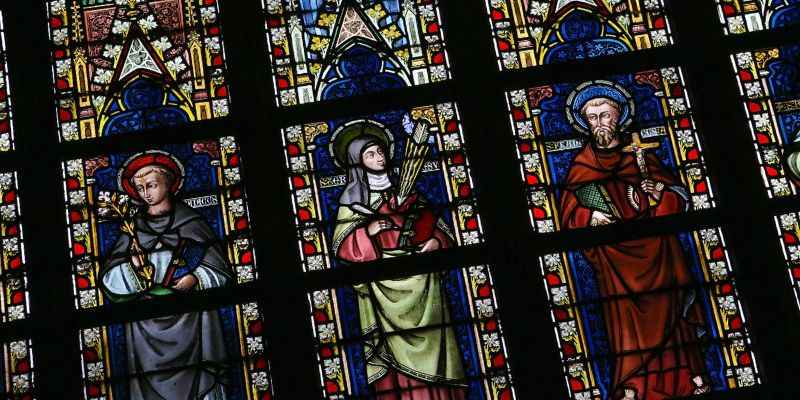
Pope Benedict used to talk about the saints of this time in history. He said that the men and women of the church’s future will be saints, and this is a beautiful phrase that he uses there. They have embraced a greater vision. Their hearts and minds are caught up in a greater vision of reality itself. And that is where the commitment to daily prayer and all sorts of other interesting stuff happens.
When you pray long enough, you start to see these layers of brokenness, weakness, and sin in your own life, but it’s not crushing. I had a lot of formation in St. John of the Cross, and he gives this example in the ascent of Mount Carmel of a log being on fire. When a log goes on fire at first, you see all the imperfections, like when centipedes, caterpillars, or cockroaches come flying out of the bark and they’re forced out. And then you see water and fluid maybe coming out of the end of the log. And then, as it burned, you saw silver, these little imperfections and marks upon the timber, but he said eventually, the timber becomes literally one with the fire and becomes the fire.
It was an analogy for prayer because, as our life of prayer begins, we are often aware of our frailties and limitations, and Christ works very generally with us to drive those out over time and with friends. It can be a long time. I turned 50. This is my 50th year, and it’s quite humbling to realize how many years it can take. So if you’re struggling with anything—patterns of sin, damages to relationships, or things that just seem intractable—have patience with yourself because sometimes the Lord knows exactly what he’s doing. I think so; for me, it’s like his sense of humor.
He’s like looking back and going, Jonathan; look at what you worried about and stressed about and thought would never change; look back now; look back like you’ve; I think God would say to me, Look, you. He tried to stay faithful, and he’s been faithful to me. I don’t want you to miss any of this. I don’t want you to miss any of this richness, and I want you to miss any of this growth. So, my friend, to sum up, this great mythologist, Joseph Campbell, is telling us that if you want to live, you must.
Catholic Teacher's Call to Revolutionize Prayer: Embracing Stillness and Solitude Amid Distractions
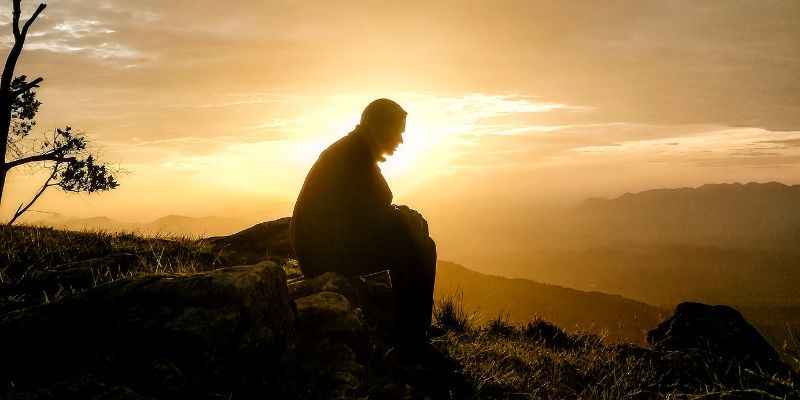
I said on the other show that Aristotle has a great quote where he says that the unexamined life is not worth living. Too much introspection can be dangerous, but I think we’re at a cultural moment where the exact opposite is happening. Where there is not enough introspection. There’s not enough stillness, solitude, silence, and mystery in our lives. Can I encourage you specifically to take some action this week? Whether it means you’re getting up a bit earlier. Or there’s all sorts of possibilities for you.
Some people are night people, and you might have Eucharistic adoration nearby that goes into the evening, and maybe after dinner when the kids are there and you can escape. I used to do that. You just jump in your car and go, and it’s never easy, it’s never practical, and it’s never convenient. But it’s never pointless. He never lets you down. So it might be that on the way home from school, you stop in the chapel or you go to the school chapel after school; who knows, but you got to be a bit of a revolutionary here.
I think Benedict’s right. The men and women of this coming change, you’re going to be men and women of revolution who do revolutionary things. In a culture of distraction and addiction, you all know the saying that in the kingdom of the blind, the one-eyed person is king. It’s like in the kingdom of distraction, the person who spends any time in prayer. Is the king right? Or Christ is king, but you get my point. So I just want the best for you. I just want you to miss nothing of the grace and beauty that God has for you and that he wants to do through you.
Nurturing Catholic Intimacy with Christ in the Midst of Life's Chaos

Karen and I have been married for almost 25 years, and she’s just the most incredible person, and we’re in this together. Some of you will really resonate with this; we’re in that absolute maelstrom of teenage parenting. So we’ve got three; we had kind of kids born. They were three under the age of three. Go figure. It’s just absolutely. We couldn’t have kids for years. And then we had it—it was three and a half.
They were three under the age of three and a half. So now they’ve all hit teens around the same time. So we’ve got 16, 15. 13. And. I had no idea. I’d thought that when they didn’t sleep as little kids, that was going to be the hardest part. And I’m just like, now we’re just on all the time, character formation, dealing with issues, peer group stuff, faith formation, all of the stuff that we have to do, all the little dramas, and stuff that I do.
I take my son, who’s 14, to play golf twice a week. In the afternoons, I’ll take my 13-year-old daughter horseback riding. I take my 16-year-old daughter surfing. Every Saturday is a two-hour drive each way, and this is no complaint, right? And some of you are doing more than this. And then. It’s by the time you’re getting to bed at night, if you like. It’s exhausting.
One of the other aspects of this, of course, that many of you will remember is that it’s hard to keep your marriage flourishing and your relationship growing. And so on Friday, all three of our kids went to a great Catholic youth group here. All three of our kids now can go because it’s like a high school age one, and all three went. Karen and I like it; it’s like Christmas Eve. It’s, oh my gosh, like we have three or, I don’t know, half hours. We can just actually hang out. So we went out for dinner, and we sat across the table together, and it was just the best night. We had the best night. Because our story, like our marriage and our dating story, is a really great one.
We had this incredible friendship and dating story, and we wanted to reconnect to that, be across the table from each other, and think that despite all the chaos, craziness, and busyness,. We’re still good. We still get along, and we’re still good. And here’s my point: It’s very possible. Like in a marriage, you have a relationship with Christ, but there’s no real intimacy. There’s no real connection. There’s no real time spent together.
Just like Karen and I reconnected across that table, you and I have to reconnect with Christ, but I think it’s even more important that we do it daily. Because I’m not spending time with Karen, the relationship is solid. Nothing’s going terribly wrong, but without that time, it’s hard to build the relationship. The cool thing about it is that it doesn’t have to be all dramatic, like Karen and I don’t have to like to stare into each other’s eyes for five hours a day. It’s just being with each other. In many ways, that’s what prayer is too. Especially in the contemplative lens. It’s just being with the presence of Christ, being with the Lord. So just as a marriage is sustained by time together, I think our spiritual lives cannot be sustained without that time together.
Priests in Catholic Education: A Grateful Reflection
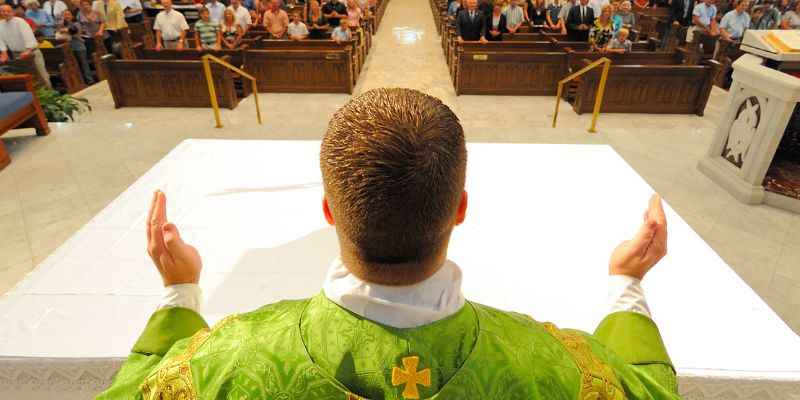
So that’s a long podcast today, but please take this seriously. Time is not infinite. We don’t; you don’t want to get to the end of your life and suddenly think, Oh yeah, I should really start a prayer life. Start it now, start it today, start it tomorrow morning. And just go gently with it, and just allow the Lord to lead you, and maybe find a great priest. Priests are awesome. I’m such a fan of priests.
I was just watching a YouTube with Father Mark Beard. Some of you may have heard of someone who died tragically about a year ago, but, my Lordy Glory, I was watching that guy go. I’m like, what a story, what a great priest, and what a love he has for the people of God. So if you have any access to great priests, just make a point to thank them this week, for they’ve been such a blessing in life.
With all the scandals that happened over the last 20 years, which are just so real and so terrible, may it never let us lose sight of the absolute, radical generosity and goodness of so many fine men who have served us in the priesthood. So if you’re priestless today, God bless you. And if you have a good priest in your life, maybe send them this podcast and say, Listen to the last couple of minutes, because we are so lucky to have you. And, of course, great women religious as well. But yeah, I was just so blessed by that.
Alright, so please make sure you’re subscribed. I’ve got another great episode coming for you tomorrow. Probably. Hopefully, if it’s shorter, and you know what? A lot of times, these episodes come from that prayer. You know what Joseph Campbell says about this sacred place: something will eventually happen. So in the mornings at 4:00 AM, when I’m reading the scriptures, I’m reading the church fathers, and I’m reading different books. Sitting in prayer.
He’s so generous. So many times I’ve prayed, I said, Lord, give me something. Like, he just multiplies, like, the loaves and the fishes. He just wanted; all he wanted was that you guys bring something. You guys bring something, and I’m going to make it so much more. So my job is to bring something, which has to bring some prayer and some reading. Then he shows up, and he hopefully gives me things that are a blessing to people and to his beautiful economy.
Catholic Educator's Journey: Trusting God's Work Behind the Scenes
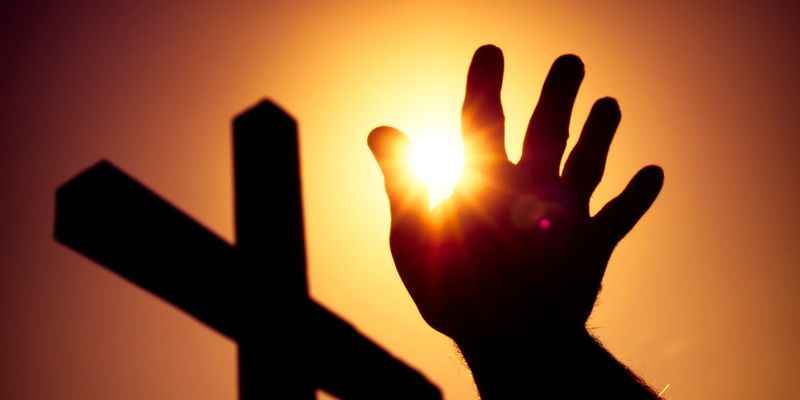
I know Mom listens to this podcast. Maybe if there’s one other person I know, even if just one of you is listening, if I only had an audience of one, I would still do it because he can multiply. I’m sorry to do this, but can I tell you one more cool story? Like you, you have no idea. What he can do. I heard this incredible story the other day from the guy, Lee Strobel.
So if you’re not familiar with Lee Strobel, he wrote these very influential books in the eighties, which I think he called The Case for Christ, the Case for God, and the Case for Creation. He was an investigative journalist and atheist. His wife became Christian, which drove him nuts. Because he had these incredible investigative journalistic skills. He thought, right? I’m going to use these skills to prove my wife wrong. She’s delusional; I’m going to show her she’s not a Christian. Long story short, he becomes absolutely converted and becomes a massive Christian evangelist.
He tells this story about the prompting of the Holy Spirit. He said he was working for the New York Times or the Washington Post, and there was somebody at his work who the spirit prompted him to go and just instantly preach the gospel to this guy and invite him to church, like literally walk up to this atheist who he knew there were colleagues and say, “Look, I’m really sorry to have to do this, but I just want to tell you that Christ died for your sins and God has this incredible plan for your life and you need to come back to church. You need to come to church, maybe for the first time.”
Then Lee Strobel is going no way, he’s saying to the Holy Spirit. “No, this is not from you. No way. They’re just going to laugh at me. It’s going to be ridiculous.” But he tries to be obedient, right? So Lee Strobel walks up to this atheist and says, “Look, I’m really sorry to do this to you, but God’s put it on my heart to tell you that he died for your sins. He’s opened the doors to heaven for you. He wants you to come to church.” The atheist looks at him and says, “No, I’m offended. I really don’t. Yeah, no, I’ve never come to church. I don’t believe in your God. This is ridiculous.” And Lee Strobel is kind of really upset. He’s okay, walks off, and he’s really confused because he was obedient, and that just went terribly.
So a couple of years later, he’s preaching at an event, and this different guy, not the atheist, a different guy, comes up to him and says, Mr. Strobel, can I talk to you, please? And he said sure. He says, “Look, you don’t know me, we’ve never met. But about two years ago, I was an intern at the Washington Post. You don’t remember this, but you actually came in one day and there was another person there, and you just stood at the counter there, at their desk, and you just preached the gospel.”
Lee Strobel said, “Yeah, I think I remember that.” And he said, “what you didn’t know, I had actually dropped something. I was on my hands and knees under that counter, trying to get something out. I happened to be on my hands and knees when you preach the gospel and invited this guy to church. It convicted my heart. I was just completely convicted, and I got back to church. God’s just taken control of my life. I would never be here if you hadn’t done that.” I was messed up by that. Do you hear it in my voice? I’m like, God is just playing with us. Here’s Lee Strobel thinking, Oh gosh. I was obedient, and it failed.
We do not see my friends; we do not see what he is doing behind the scenes. So you don’t see what he might be doing through one conversation you have with a student. If you’re a principal, you do not know what he might be doing through your faithfulness, your holiness, and your desire to build a great Catholic Christian educational community, or if you’re a bishop listening to this, you cannot know how your pursuit of holiness and your pastoral heart. If you’re obedient and can just bless people.
Connecting through Catholic Faith and Education
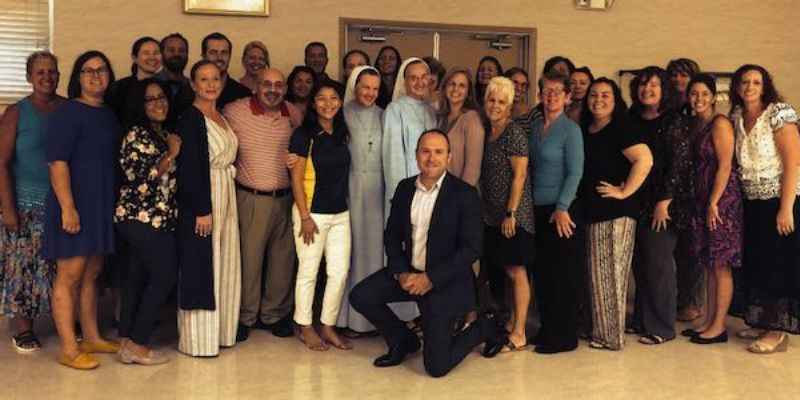
So let us all be encouraged by that story. And I will now promise to stop. I really will, because I just love you guys. And I really care about this message, and I want everything. I want you to have everything that God has for you. Please make sure you’ve subscribed. Please share this with people, and everything’s on the website, jonathandoyle.co. I’ll be back speaking in the US soon.
If you want to book me to speak to staff, I cover a whole range of topics. Burnout for teachers, resilience, faith formation, mission, Catholic vision and mission, and identity for education leadership. I speak to students still. There’s a whole bunch of stuff that I do. And of course, consultancy works. I do a lot of sort of top-end consultancy for Catholic organizations on their projects and different things. I hope that’s all useful. If you’re on Instagram, come and say, Hi, @jdoylespeaks. If you’ve got your phone, just type in jdoylespeaks one word in Instagram and just send me a DM, say hello, and let me know that you’re listening. But otherwise, you can send me a message through the website: jonathandoyle.co.
So if this is a topic that you would like me to speak about for you in your journey of Catholic education, just email me through the website, jonathandoyle.co. God bless you, my friends. This has been the Catholic Teacher Daily Podcast. And you and I are going to talk again tomorrow.
